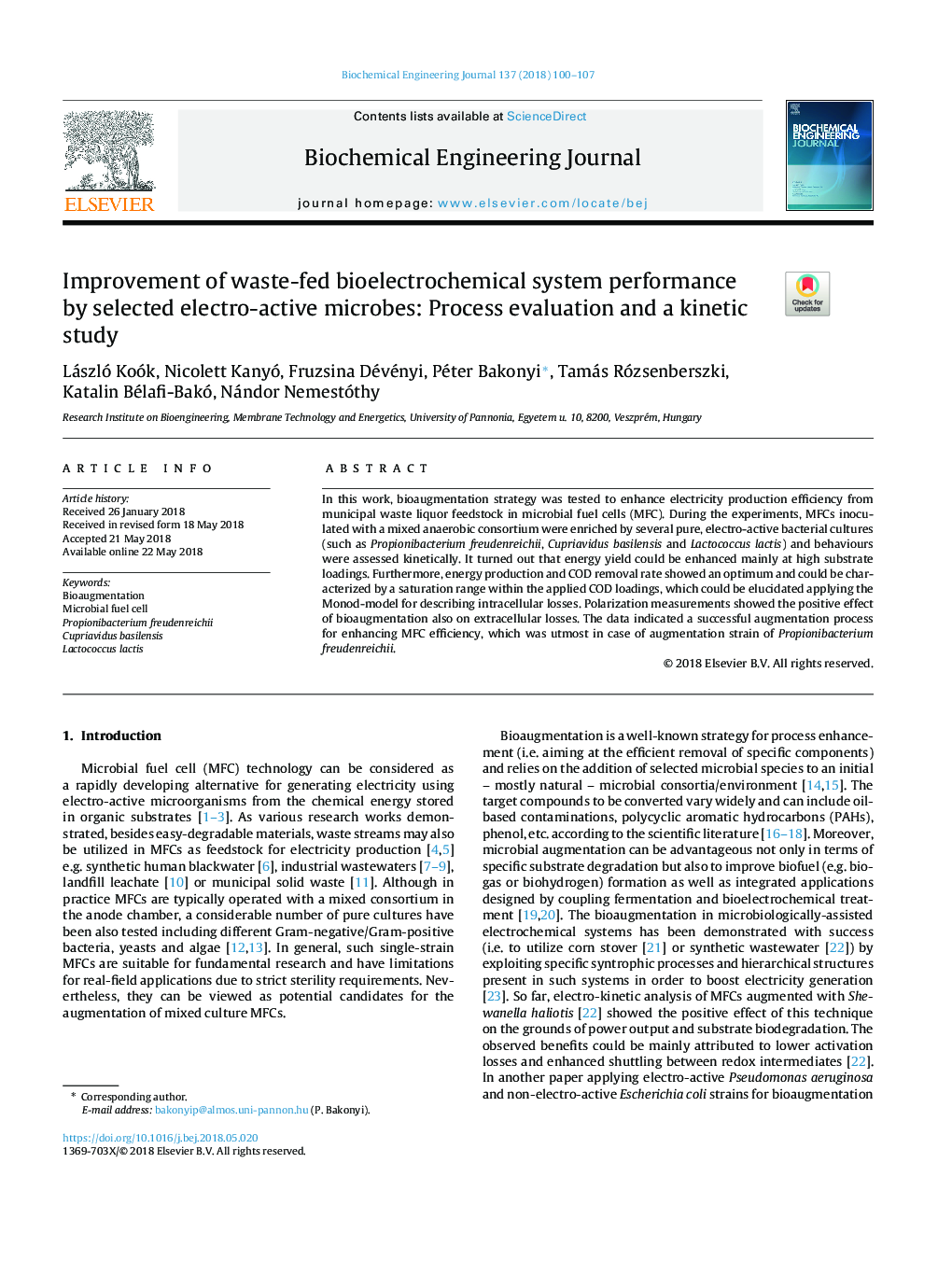| Article ID | Journal | Published Year | Pages | File Type |
|---|---|---|---|---|
| 6483891 | Biochemical Engineering Journal | 2018 | 8 Pages |
Abstract
In this work, bioaugmentation strategy was tested to enhance electricity production efficiency from municipal waste liquor feedstock in microbial fuel cells (MFC). During the experiments, MFCs inoculated with a mixed anaerobic consortium were enriched by several pure, electro-active bacterial cultures (such as Propionibacterium freudenreichii, Cupriavidus basilensis and Lactococcus lactis) and behaviours were assessed kinetically. It turned out that energy yield could be enhanced mainly at high substrate loadings. Furthermore, energy production and COD removal rate showed an optimum and could be characterized by a saturation range within the applied COD loadings, which could be elucidated applying the Monod-model for describing intracellular losses. Polarization measurements showed the positive effect of bioaugmentation also on extracellular losses. The data indicated a successful augmentation process for enhancing MFC efficiency, which was utmost in case of augmentation strain of Propionibacterium freudenreichii.
Related Topics
Physical Sciences and Engineering
Chemical Engineering
Bioengineering
Authors
László Koók, Nicolett Kanyó, Fruzsina Dévényi, Péter Bakonyi, Tamás Rózsenberszki, Katalin Bélafi-Bakó, Nándor Nemestóthy,
